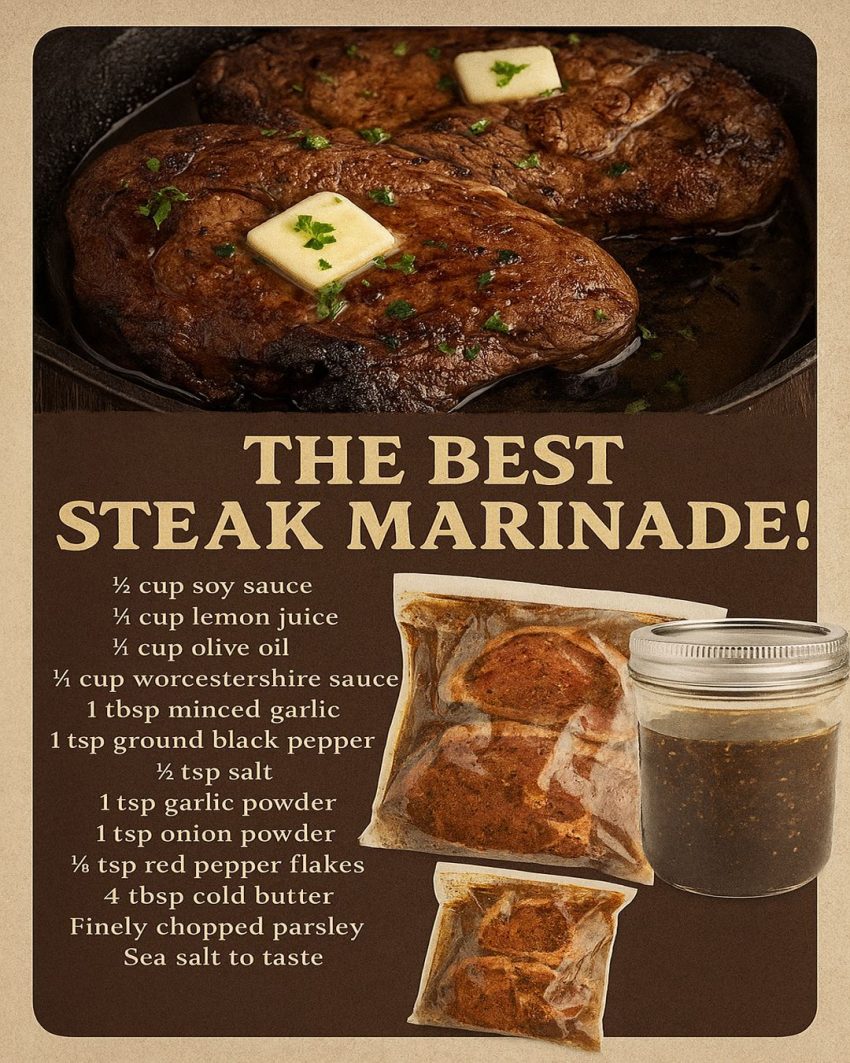ADVERTISEMENT
The Science Behind a Marinade
Marinades serve several purposes: they add flavor, tenderize the meat, and sometimes even help in the cooking process. The key ingredients of a marinade typically include an acid, such as vinegar or citrus juice, which breaks down the protein structure of the meat, making it more tender. Oils are also essential as they help to transfer the flavors of herbs and spices into the meat while keeping it moist. A balance of sweet and savory elements can further enhance the complexity of the flavor profile.
Understanding the role of each ingredient in a marinade is crucial. For example, acids like lemon juice or vinegar are powerful tenderizers, but too much can make the meat mushy if left for an extended period. Oils, such as olive or sesame, coat the steak and ensure it remains juicy. Aromatics like garlic, onions, and herbs add depth, while soy sauce or Worcestershire sauce can contribute umami richness.
Crafting Your Marinade
To create the best steak marinade, start with a base of acid and oil. A classic combination could be one part balsamic vinegar to two parts olive oil. From there, add your chosen flavors. Freshly minced garlic and chopped rosemary can impart an earthy aroma, while a splash of soy sauce provides a savory backbone. For a hint of sweetness, consider adding a tablespoon of honey or brown sugar.
Spices are also a great addition to any marinade. Ground black pepper, paprika, and a dash of cayenne can give your steak a gentle kick. Remember, the key is balance—each component should complement the others without overpowering the steak’s natural flavor.
Marinade Tips and Tricks
Timing is essential when it comes to marinating steak. Ideally, you want to marinate the steak for at least 30 minutes, but no more than 24 hours. This timeframe allows the flavors to penetrate the meat without compromising its texture. If you’re short on time, even a quick 30-minute marinade can make a noticeable difference.
When it comes to the marinating process, always use a non-reactive container like glass or plastic. Metal containers can react with the acidic components of the marinade and alter the taste of the steak. Ensure that the steak is fully submerged in the marinade, or if using a resealable plastic bag, turn the steak occasionally to ensure even coverage.
Before cooking, remove the steak from the marinade and let it come to room temperature. This step ensures even cooking. Pat the steak dry with paper towels to achieve a beautiful crust when searing. Always discard any leftover marinade that has been in contact with raw meat to avoid cross-contamination.
ADVERTISEMENT


